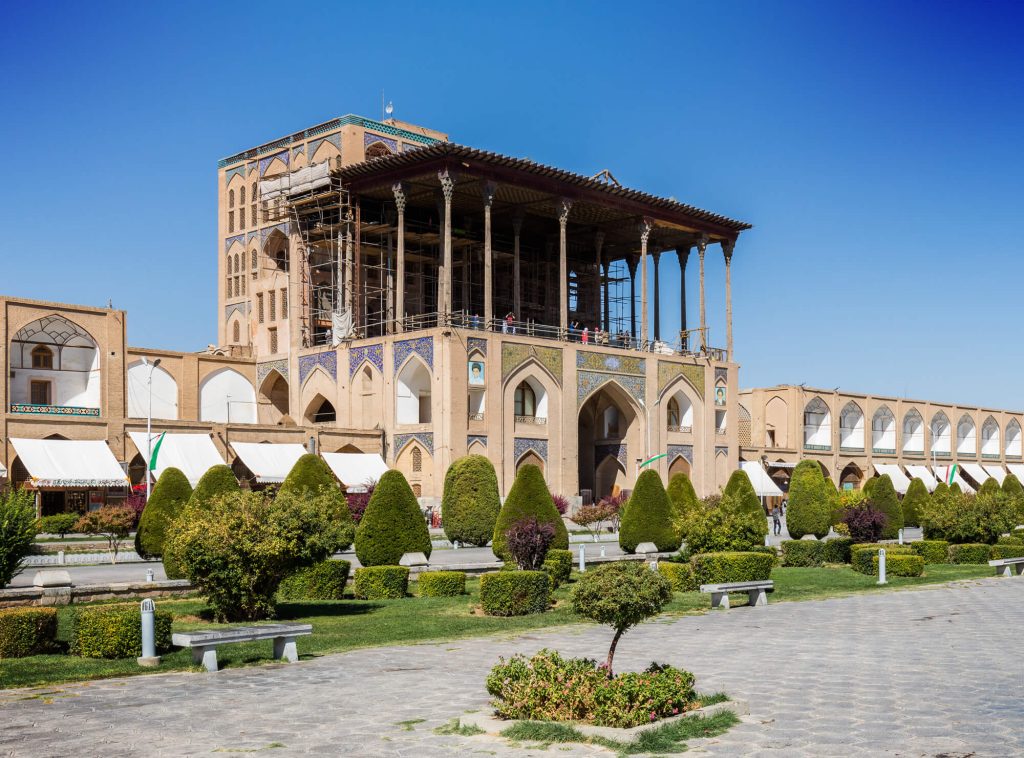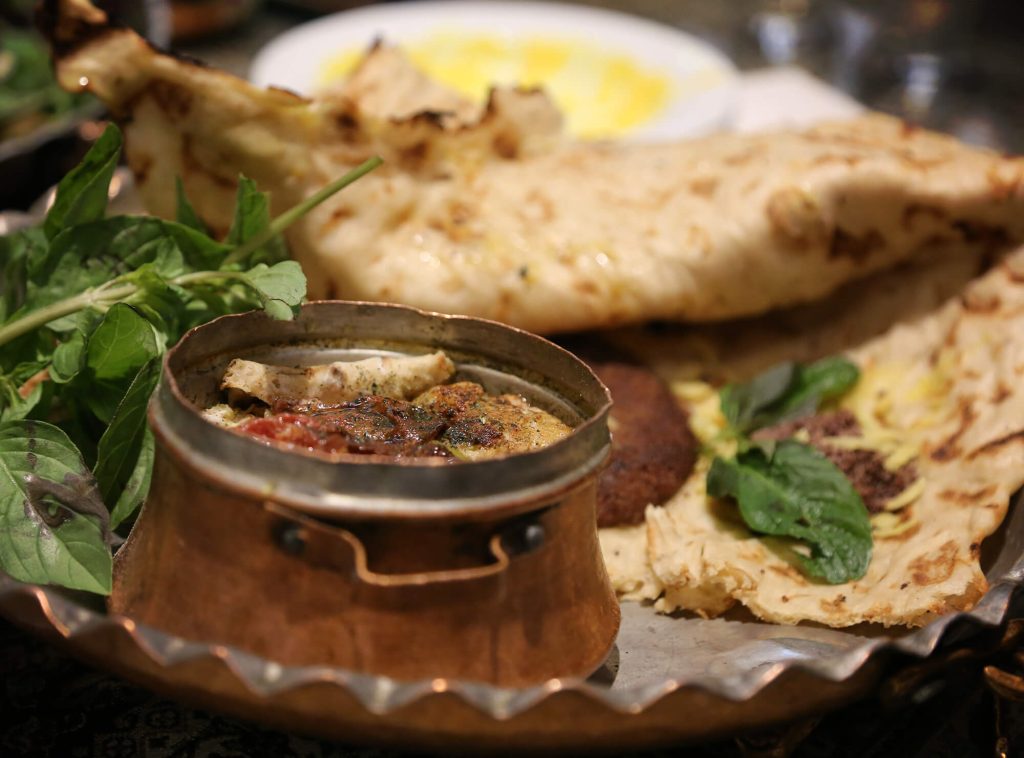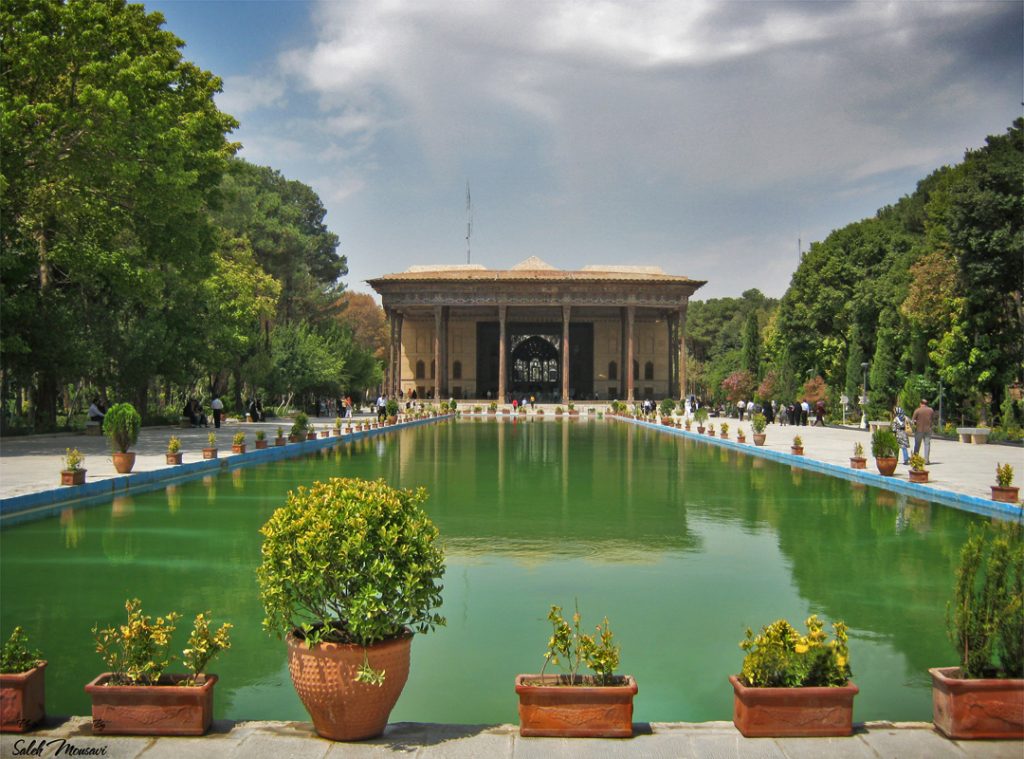The wonderful Ali-Qapu shines with paintings of flowers and plants. It has Foliage, beasts, and plasterwork in the form of cups and saucers embedded in the arches and walls. It didn’t want to place cups and dishes in the stucco shapes in this part of the building. The reason was the type of this work is very delicate and will break with the slightest touch. Wikipedia
Ali-Qapu, A must-see palace in Isfahan
Ali-Qapu Palace in Naghsh-e Jahan Square of Isfahan is one of the most beautiful examples of Safavid architecture in Iran. Also, Ali-Qapu mansion attracts the attention of many domestic and foreign tourists with its outstanding architecture and remarkable decorations by famous Iranian artists.
In other words, The most important parts of Ali-Qapu Palace are the entrance to the palace, luxurious halls, a music hall on the top floor and prominent works of art in different parts of Ali-Qapu mansion. The chief basics of this hall are built of lumber, and this adds to the architectural appeal of the magnificent Qapu Palace.
One of the most interesting attractions on a trip to Isfahan is the Aali Qapo Palace. Join us to get acquainted with the palace building and different parts of Aali Qapo mansion.
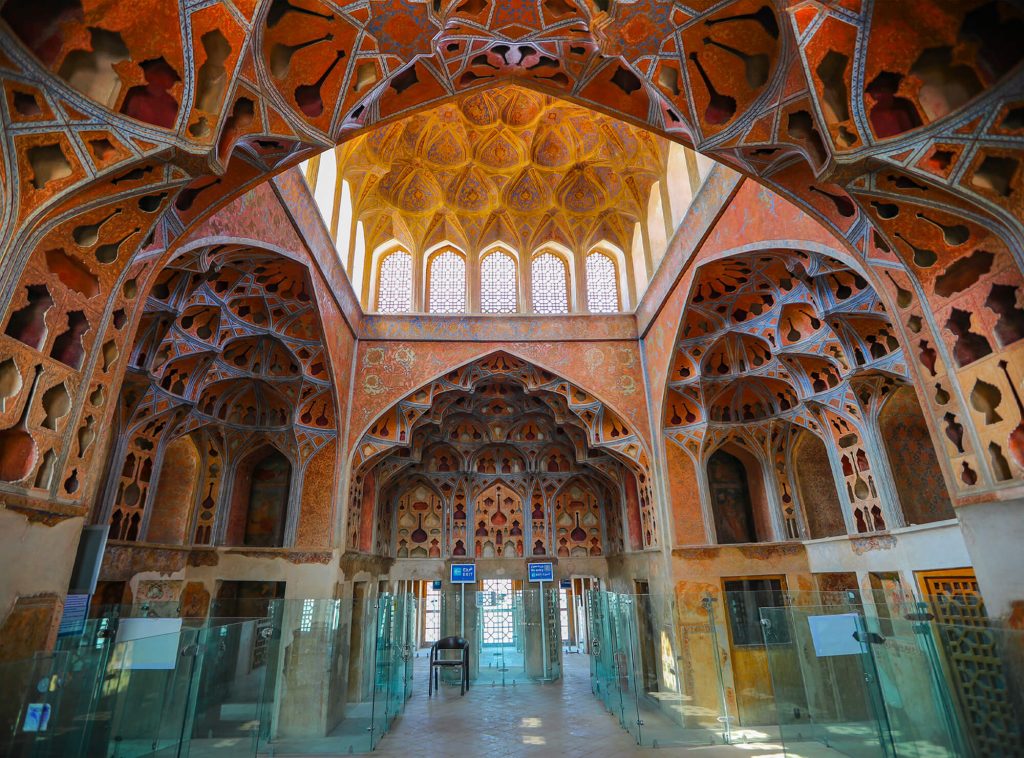
The remarkable domination of Ali-Qapu
Ali-Qapo Palace is one of the most beautiful historical monuments from the Safavid period. It is one of the most famous sights of Isfahan. Qapo Palace or Mansion is located on the west side of Naghsh Jahan Square in Isfahan and in front of Sheikh Lotfollah Mosque.
In the past, the Aali Qapo castle was also mentioned to as the “holy administration of the role of the world” and the “palace of the government”. Aali Qapo Palace has an area of 1800 square meters and 6 floors. The word Ali-Qapu consists of two parts, Ali and Qapu, which together mean “high door” or “high door” in Turkish. Ali-Qapu Palace, with its beautiful wood-based architecture, is one of the largest and most magnificent buildings of its time and was built in the early eleventh century AH.
The architecture and planning of Ali-Qapu
The entrance of the Aali Qapo mansion during the Safavid period was the entrance gate to all the royal buildings in Naghsh Jahan Square. Shah Abbas I, Safavid, in order to show the power and glory of his government, ordered the construction of the High Qapo Mansion. Important government meetings, welcoming foreign guests, and government ceremonies were held at the palace; Also, the balcony of this mansion was a place for Shah Abbas and his entourage to leave during the polo and equestrian competitions in Naghsh Jahan Square and watch these competitions.
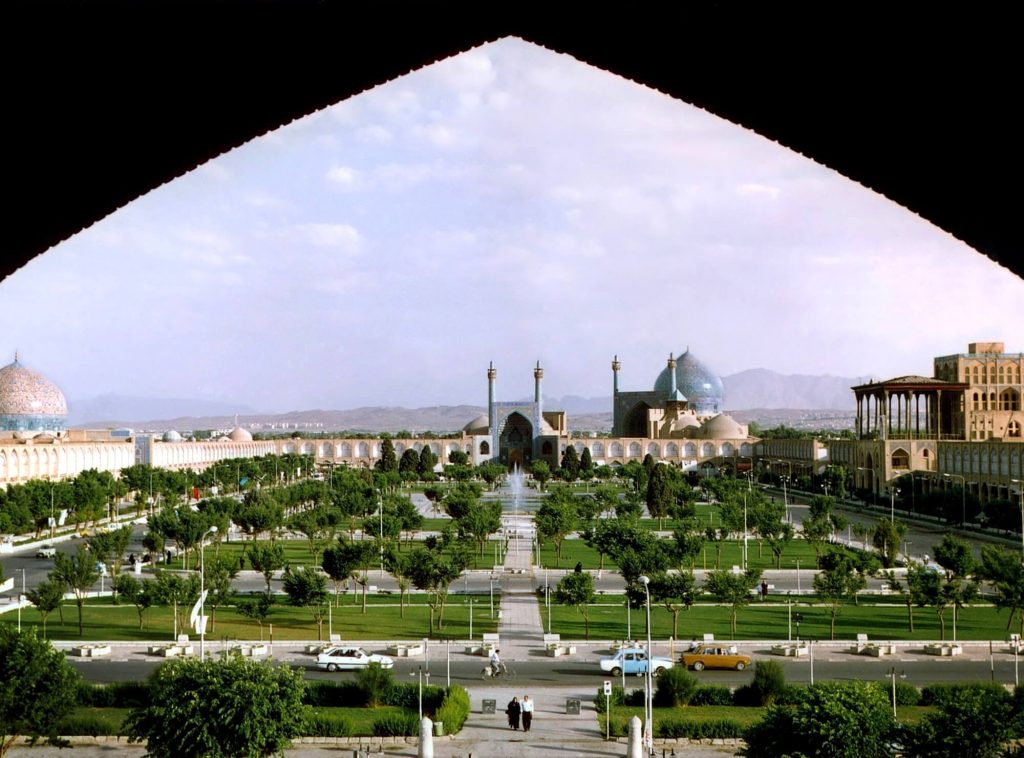
Foundation of admiration
Ali-Qapu mansion was very respectful during the reign of Shah Abbas I. It was not possible for everyone to cross the entrance of this building. Visiting Isfahan’s Naghsh Jahan Square. This 6-storey building attracts the attention of many tourists, from the distant past to the present. Qapu High Palace is famous as the tallest palace of the Safavid era.
It reaches the upper floors with a narrow staircase from the ground floor. Climbing these stairs is a bit difficult due to their high height; But behind it is a beautiful porch with wooden columns that reaches a height of 20 meters and watching Naghsh Jahan Square from above is very enjoyable. In this porch, you can see Sheikh Lotfollah Mosque in front of you, Qaisaria Mosque on the left and Shah Mosque on the right. Aali Qapo Mansion is one of the most interesting historical monuments in Naghsh Jahan Square of Isfahan.
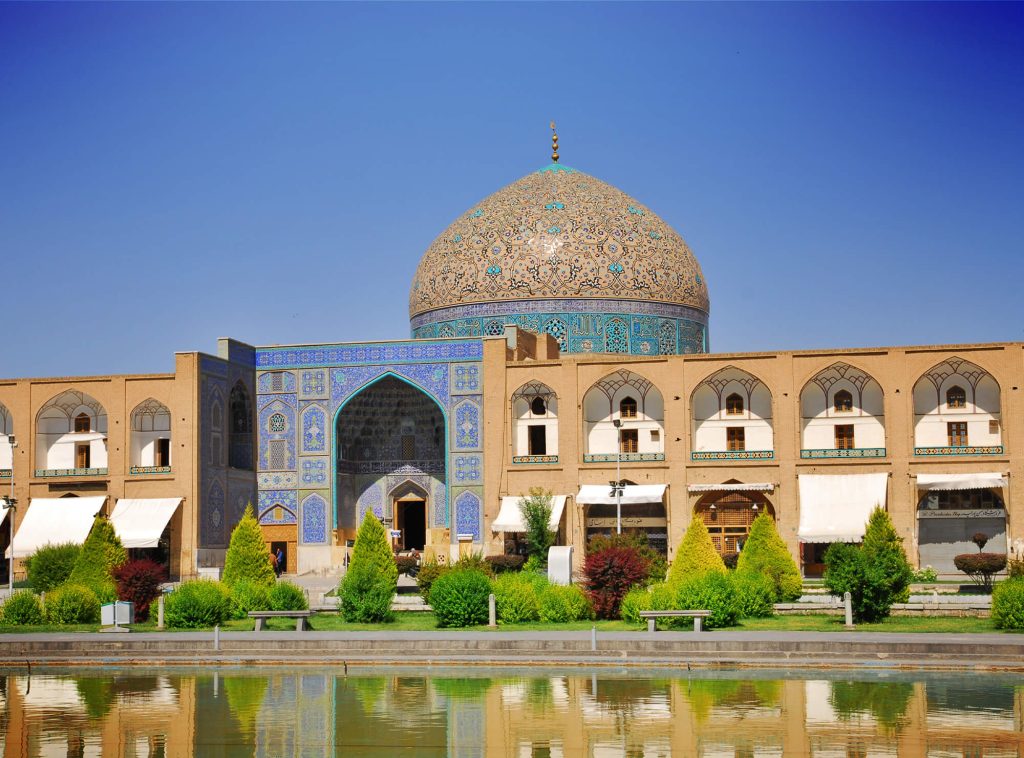
Its history and origin of Ali-Qapu
Qapo High Palace dates back to Safavid rule in Iran, when Isfahan was the command capital. This building arose around 1054 AH (between 971 and 977 AH) by order of Shah Abbas I, who was one of the most powerful kings of Iran. Of course, the elegance and decorations of Aali Qapo mansion were complete after the death of Shah Abbas I. The complete construction of the magnificent Qapo building and the completion of the interior decorations of this mansion took place during the reigns of Shah Abbas I, Shah Abbas II and Shah Sultan Hussein. This interval lasted nearly 100 years, when the architectures measured building stages. The foundation of the building dates back to the time of Shah Abbas I and II. Its restoration and decoration dates back to the reign of Shah Sultan Hussein.
The one of a kind household design in Ali-Qapu
In the interior decoration of the Aali Qapo mansion, prominent calligraphic and miniature works of art from the period after Shah Abbas I, demonstrates in which shows the completion of Qapoo Palace after his death. According to Shah Abbas’s goal of building the Aali Qapo mansion, it was as a “government palace”. The architecture of the building, colored by the most prominent Iranian architects. Architectures took these measures after moving the capital from Qazvin to Isfahan.
The aftermath
Before changing capital in the Safavid period, there was a building of the same name in the city of Qazvin. Also called as the seat of the Safavids; For this reason, and according to historians, the High Qapavi Palace of Isfahan is a more luxurious example than the High Qapoo Palace on Sepah Qazvin Street. Shah Abbas I decided to build in order to show the greatness of his government and authority.

